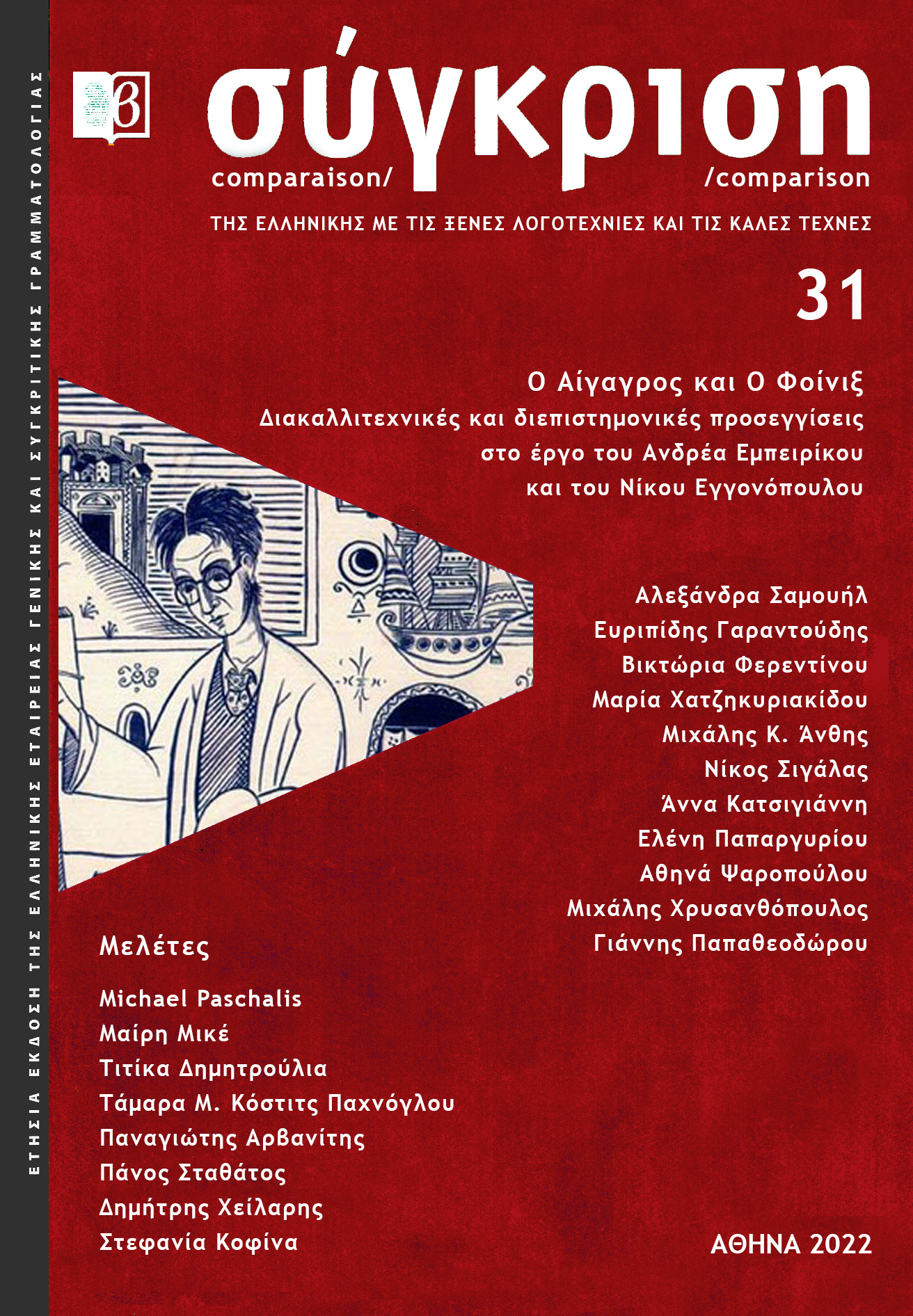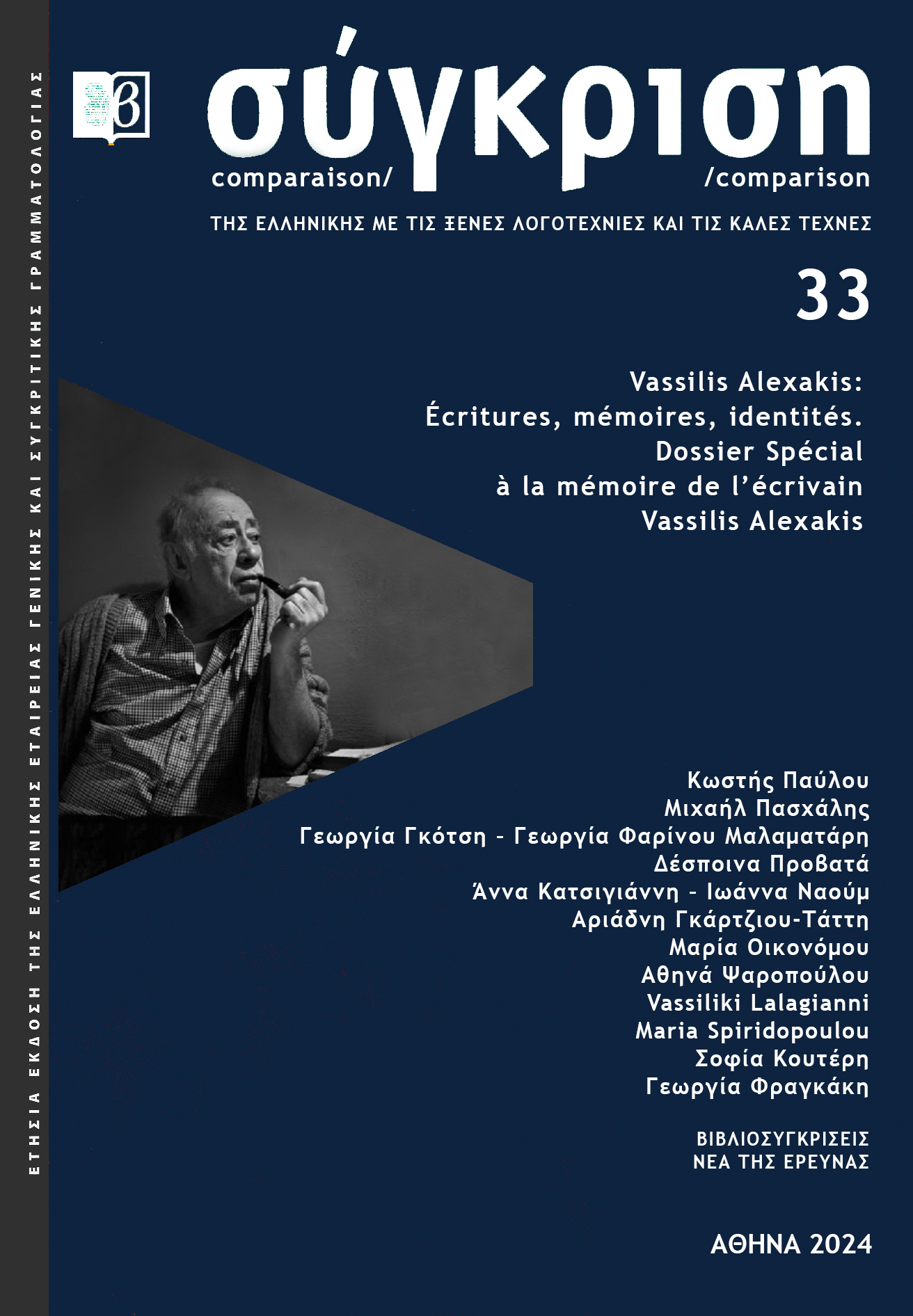ΑΘΗΝΑ ΨΑΡΟΠΟΥΛΟΥ, "Σαν μια νεάνις που φορεί πλατύ φουστάνι": Η εμπειρίκεια επιφάνεια ως σύνθεση μνήμης και φωτογραφίας
Abstract
“Like a young woman in a loose-fitting dress”: The epiphany of Andreas Embiricos as fusion of memory and photography
This paper attempts to shed light on the significance and role of the four “epiphanies of the past recaptured”, which are an integral part of the “analysis” of the poem “8th January 1942” by Andreas Embiricos and derive from the verbal image of the verse “Like a young woman in a loose-fitting dress”. In these epiphanies, time becomes fluctuant and the memory of the past (specifically the memory of four exceptional women-muses of important surrealist creators) is fused with the present experience of the poet. The fourth of them, which embodies Embiricos’ first wife, enlivens the memory of a past event and a photograph. Those two turn into a present reality, in a complete osmosis of the epiphanic object’s unconscious, revealed through the photograph, with the epiphanic subject’s unconscious that perceives it. In effect, spatial time blends with psychological time, as in communicating vessels, revealing the “convulsive beauty” of surreality.
Article Details
- How to Cite
-
Ψαροπούλου Α. (2022). ΑΘΗΝΑ ΨΑΡΟΠΟΥΛΟΥ, "Σαν μια νεάνις που φορεί πλατύ φουστάνι": Η εμπειρίκεια επιφάνεια ως σύνθεση μνήμης και φωτογραφίας. Comparison, 31, 99–107. https://doi.org/10.12681/comparison.29873
- Issue
- Vol. 31 (2022)
- Section
- Articles

This work is licensed under a Creative Commons Attribution-NonCommercial-ShareAlike 4.0 International License.
Authors who publish with this journal agree to the following terms:
- Authors retain copyright and grant the journal right of first publication with the work simultaneously licensed under a Creative Commons Attribution Non-Commercial License that allows others to share the work with an acknowledgement of the work's authorship and initial publication in this journal.
- Authors are able to enter into separate, additional contractual arrangements for the non-exclusive distribution of the journal's published version of the work (e.g. post it to an institutional repository or publish it in a book), with an acknowledgement of its initial publication in this journal.
- Authors are permitted and encouraged to post their work online (preferably in institutional repositories or on their website) prior to and during the submission process, as it can lead to productive exchanges, as well as earlier and greater citation of published work (See The Effect of Open Access).




